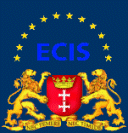
 |
"Everyone walking for the first time on the streets of Gdańsk is surprised by the high picturesque beauty of the city's layout, rare splendour and luxurious sumptuousness, that manifest themselves everywhere. What in Gdańsk enchants most are not the churches, although also among them one can find more than worth attention, but the general urbanistic foundation and the way, in which the power of the city and the riches of the burghers are embodied in its architecture". Such opinions can be read not in any poem praising beauty of Gdańsk, but in scientific monographs on the history of European architecture. When serious scientists use the language of poetry, the reason can be but one: a real admiration upon the city's beauty. Gdańsk always evoked admiration and love. We find them an expert treaties relations of travellers and reminiscences of its old inhabitants forced to leave the city to live far from it. Similar reactions are observed also today. Everyone, who even once showed Gdańsk to the strangers coming for the first time here, could experience it. They absorb its immortal beauty, without analysing or wondering what is authentic and what was reconstructed after the terrible destruction of the last war. They directly commune with the history and draw it joy and satisfaction. Is is the best proof of rightness of the concept of reconstruction, accepted half a century ago. A great attraction of Gdańsk are its old traditions. Its long and often dramat history - from the visit of st. Adalbert in 997 to the great celebration of its 1000 anniversary - is here a ve everywhere. Is is present in old documents and architectural landmarks, in science and culture and in everyday life of the people. Always alive remains the traditional love of freedom, revealed equally strong in the 15 century, when burghers of Gdańsk shaked off the yoke of the Teutonic Knights as well as in the times of "Solidarność", when they successfully revolted against the communist system. The spiritual power manifested itself in achievements of pioneers of science from Gdańsk as distinguished as e g the astronomer Jan Hevelius, physicists Gabriel Fahrenheit and Daniel Gralath or the philosopher Arthur Schopenhauer. Had they lived in the 20 century, they would be the Noble prizewinners, like their successors: biochemist Adolf Butenandt, freedom fighter Lech Wałęsa and the man of letters - Günter Grass. Gdańsk always had outstanding artist creators of masterpieces of brick, stone of amber. It was and it is the world's capital of amber. The most famous achievements of masters from Gdańsk was the Amber Chamber - unfortunately lost in the last war. The scientific and artistic traditions maintained and developed by 9 Academic Schools, with their 700 professors and 55 thousand students. What is the secret of this magic of Gdańsk? The city is unique. Beautiful are not only its art and architecture but also its surroundings. It is situated at the junction of three geographic regions: the Cassubian Heights - up to 300 m high, Lowlands of Żuławy- the Polish Holland with depressions under 1m below the sea level, and the sandy beaches of the seaside, called the Amber Coast, since on can really gather amber on it. Gdańsk combines the triple beauty of landscape, architecture and history, being at the same time a busy seaport, a big centre of science, education, industry and culture. But the best are the people - freedom loving, open to new ideas and friendly to visitors from the world around. And they have a proverb - old but ever valid: "Everyone loves two cities - the one where he was born and Gdańsk". You may prove it yourselves. Prof. Andrzej Januszajtis Top of the page http://ecis2002.univ.gda.pl
Copyright © ECIS 2002. All rights reserved. add to favorites |